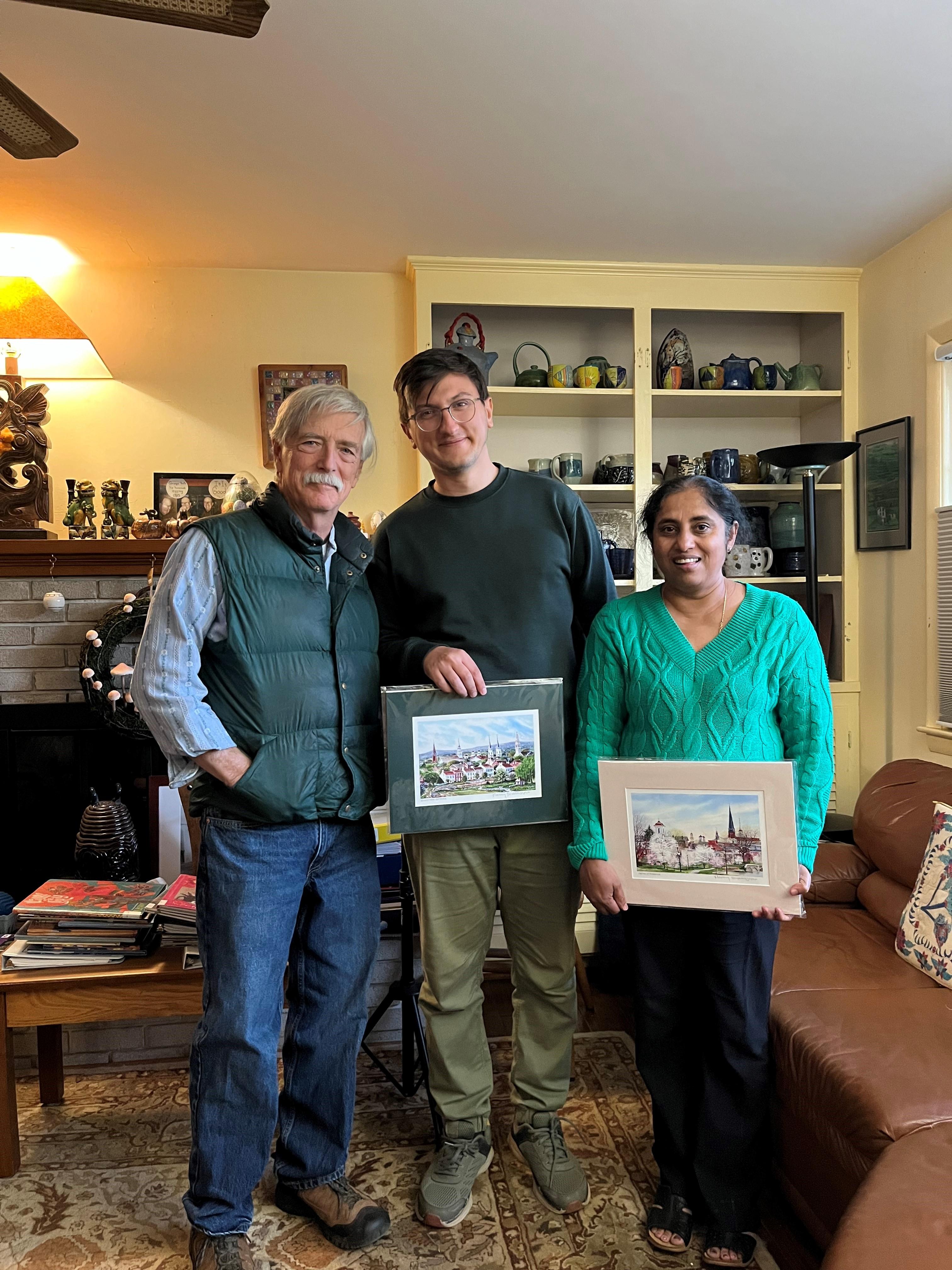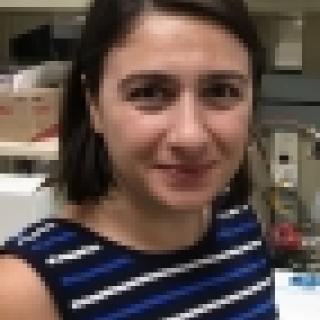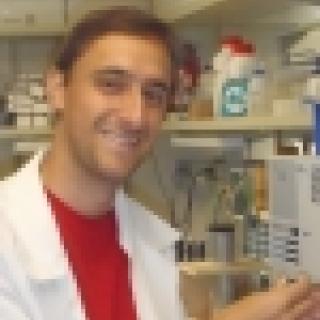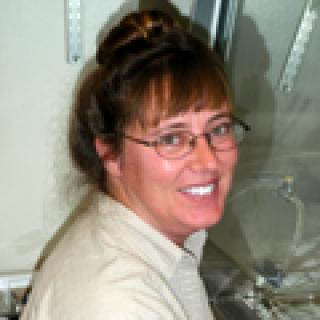
John A. Beutler, Ph.D.
- Center for Cancer Research
- National Cancer Institute
- Building 576, Room 103
- Frederick, MD 21702-1201
- 301-846-1942
- beutlerj@mail.nih.gov
RESEARCH SUMMARY
Dr. Beutler has identified several natural products which have potential for development as cancer drugs, among them, englerins, which are in preclinical development for kidney cancer and Ewing’s sarcoma, schweinfurthins, which are preclinical candidates in glioblastoma and malignant peripheral nerve sheath tumors, and salicylihalamides, of interest in sarcomas. As a Staff Scientist 2, Dr. Beutler oversees the Program's high-throughput screening libraries, information technology, and drug development efforts.
Areas of Expertise

John A. Beutler, Ph.D.
Research
We are advancing two natural product projects towards the clinic: englerins for kidney cancer and Ewings sarcoma, and schweinfurthins for central nervous system (CNS) tumors and other NF1-dependent conditions. These natural products both have unique mechanisms of action. In addition, our group builds and maintains the library of chemical diversity with which the Molecular Targets Program conducts high-throughput screening campaigns based on CCR-identified molecular targets.
Publications
- Bibliography Link
- View Dr. Beutler's ORCID page.
- View Dr. Beutler's Publons page.
Synthesis of a stable and orally bioavailable englerin analogue
Synthesis and biological evaluation of new (-)-englerin analogues
Englerin A stimulates PKCθ to inhibit insulin signaling and to simultaneously activate HSF1: pharmacologically induced synthetic lethality
Schweinfurthin A selectively inhibits proliferation and Rho signaling in glioma and neurofibromatosis type 1 tumor cells in a NF1-GRD-dependent manner
Biography

John A. Beutler, Ph.D.
B.A., Chemistry, Vassar College, 1972
M.Sc., Philadelphia College of Pharmacy & Science, 1978
Ph.D., Philadelphia College of Pharmacy & Science, 1980
Postdoctoral Fellowships:
Northeastern University, 1980-1
Assistant Professor, Auburn University School of Pharmacy, 1981-1983
University of Texas Medical School at Houston, 1983-4
AAAS Fellow, 2019
Team
Collaboration
Mission
The Molecular Targets Program (MTP) provides leadership for the translation of basic science advances into drug leads, bioprobes and reagents for molecular target evaluation. We exploit chemical and biodiversity repositories, including the NCI Natural Products Repository, for molecularly-targeted lead discovery. The goal is to facilitate the discovery of natural products and synthetic compounds that may serve as bioprobes for chemical genetics, proteomics, target validation and potential lead compounds for clinical development. Compounds of interest include not only classical, "drug-like" organic small molecules, but also peptides, proteins, and other bioactive chemical classes.
If you would like to collaborate on a project, the process to do so consists of two steps:
A. Interaction of MTP and Principal Investigator(s) with MTP Steering Committee
- Initial contact with MTP is informal and may come through any MTP or MTP Steering Committee member; MTP will organize introductory seminar.
- After an introductory seminar and exchange of ideas, MTP Director will appoint a project manager for initial exploration of feasibility, if appropriate.
- Principal investigator(s) will provide MTP with necessary materials and expertise for initial assay evaluation and optimization.
- After project initiation, Principal investigator(s) and MTP staff will present project status to the MTP Steering Committee for questions and review.
- Pending MTP Steering Committee approval and sufficient progress, MTP will optimize assay system for HTS and prepare cost and time estimates for Steering Committee.
- MTP staff will present potential HTS programs to Steering Committee for approval to proceed with HTS.
B. Interaction of Principal Investigator(s) with MTP Staff
General considerations for project evaluation
- Is the molecular target relevant to cancer or to other human diseases?
- Are secondary and tertiary assays available to further evaluate primary screen actives?
- Has it been established that modulation of the molecular target produces a measurable and predicable in vitro or in vivo effect?
- Have any modulators of the target been identified?
- Are sufficient reagents (cell lines, purified proteins, controls, substrates, detection reagents, etc.) available to support assay development, assay validation, and screening?
- What is the potential assay format and is there a suitable assay platform present in the MTDP to match?
- Is the assay particularly time or temperature sensitive and does the assay generate a stable endpoint?
- Are there concurrent screening efforts in industry or other NCI divisions?
- What is known to non-specifically affect the proposed assay or detection reagents (e.g., solvents, impurities, classes of compounds, etc.)?
- Are positive and negative assay controls available and validated?
Assay-specific considerations:
1. Cell-based assay requirements
Principal Investigator(s) should be able to provide:
- Detailed protocol for maintenance and assay conditions for cell lines
- Documentation that cells are mycoplasma free
- Information on passage stability of cell line
- Applicability to growth in a 96-well plate format
- Growth curve data that covers potential assay interval
- If growth factor dependent, provide dose-response curve with applicable growth factor
- Evidence of cell line compatibility with DMSO levels necessary for screening
2. Protein-ligand assay requirements
Principal Investigator(s) should be able to provide:
- Written protocol defining initial assay: reagents, pH, co-factors, other assay components, order of addition, acceptable ranges for time and temperature
- Sufficient supply of target proteins and ligands to allow initial analysis of reagents, binding interaction and assay conditions
- Possible mechanism for re-supply of reagents in quantities necessary for HTS
- Information on reagent stability and optimal handling of reagents
- Willingness to co-perform initial experiments with MTP personnel
3. Phage-display assay requirements
Principal Investigator(s) should be able to provide one of the following target sources, and/or one of the following library sources:
Target
- 500 µg of highly purified target protein, with fusion partner, preferably with biotin acceptor domain, OR
- A pair of cell lines: one of which expresses target membrane protein, the other does not, OR
- For construction of paramagnetic proteoliposomes, detergents which can be used for cell lysis of pull-down experiments, OR
- Biotinylated small molecule for small molecule-binding protein
Library Construction
- 10µg of good quality of poly(A)^+^RNA for cDNA library
- cDNA for target protein fragment library for binding site mapping
Covers

Neopetrothiazide, an intriguing pentacyclic thiazide alkaloid from the sponge Neopetrosia sp.
Neopetrothiazide (1), a pentacyclic isoquinoline quinone, was isolated from a Neopetrosia sp. sponge. The structure elucidation was facilitated by utilizing long-range heteronuclear single quantum multiple bond correlation (LR-HSQMBC) and heteronuclear multiple bond correlation (HMBC) nuclear magnetic resonance (NMR) pulse sequences optimized to detect four- and five-bond (1)H-(13)C heteronuclear correlations. These NMR experiments can help assign proton-deficient structural motifs like neopetrothiazide (1), which has 14 contiguous nonprotonated centers (C, N, and S). Neopetrothiazide (1), with an unprecedented thiazide-fused structural scaffold, is the first natural product containing a thiazide moiety.
Wang D, Jiang W, Kim CK, Bokesch HR, Woldemichael GM, Gryder BE, Shern JF, Khan J, O'Keefe BR, Beutler JA, Gustafson KR. Neopetrothiazide, an intriguing pentacyclic thiazide alkaloid from the sponge Neopetrosia sp. Org Lett 23: 3278-3281, 2021.

Synthesis and biological assessment of 3,7-dihydroxytropolones
3,7-Dihydroxytropolones (3,7-dHTs) are highly oxygenated troponoids that have been identified as lead compounds for several human diseases. To date, structure-function studies on these molecules have been limited due to a scarcity of synthetic methods for their preparation. New synthetic strategies towards structurally novel 3,7-dHTs would be valuable in further studying their therapeutic potential. Here we describe the successful adaptation of a [5 + 2] oxidopyrilium cycloaddition/ring-opening for 3,7-dHT synthesis, which we apply in the synthesis of a plausible biosynthetic intermediate to the natural products puberulic and puberulonic acid. We have also tested these new compounds in several biological assays related to human immunodeficiency virus (HIV), hepatitis B virus (HBV) and herpes simplex virus (HSV) in order to gain insight into structure-functional analysis related to antiviral troponoid development.
Hirsch DR, Schiavone DV, Berkowitz AJ, Morrison LA, Masaoka T, Wilson JA, Lomonosova E, Zhao H, Patel BS, Datla SH, Hoft SG, Majidi SJ, Pal RK, Gallicchio E, Tang L, Tavis JE, Le Grice SFJ, Beutler JA, Murelli RP. Synthesis and biological assessment of 3,7-dihydroxytropolones. Organic & biomolecular chemistry 2018; 16: 62-69.

Acroamine A, a 2-Amino Adenine Alkaloid from the Marine Soft Coral Acrozoanthus australiae and Its Semisynthetic Derivatives that Inhibit cAMP-Dependent Protein Kinase A Catalytic Subunit alpha
A high throughput screen performed to identify catalytic inhibitors of the oncogenic fusion form of cAMP-dependent protein kinase A catalytic subunit alpha (J-PKAcα) found an individual fraction from an organic extract of the marine soft coral Acrozoanthus australiae as active. Bioassay-guided isolation led to the identification of a 2-amino adenine alkaloid acroamine A (1), the first secondary metabolite discovered from this genus and previously reported as a synthetic product. As a naturally occurring protein kinase inhibitor, to unambiguously assign its chemical structure using modern spectroscopic and spectrometric techniques, five N-methylated derivatives acroamines A1–A5 (2–6) were semisynthesized. Three additional brominated congeners A6-A8 (7–9) were also semisynthesized to investigate the structure–activity relationship of the nine compounds as J-PKAcα inhibitors. Compounds 1–9 were tested for J-PKAcα and wild-type PKA inhibitory activities, which were observed exclusively in acroamine A (1) and its brominated analogs (7–9) achieving moderate potency (IC50 2–50 μM) while none of the N-methylated analogs exhibited kinase inhibition.
Senadeeera SPD, Wang D, Wilson BAP, Smith E, Wamiru A, Fiesco JAM, Zhang P, O'Keefe BR, Beutler JA. Acroamine A, a 2-Amino Adenine Alkaloid from the soft coral Acrozoanthus australiensis and its Semisynthetic synthetic derivatives that inhibit cAMP-dependent protein kinase A catalytic subunit alpha. J Nat Prod, 2024, doi: 10.1021/acs.jnatprod.4c00477.
1. Senadeeera SPD, Wang D, Wilson BAP, Smith E, Wamiru A, Fiesco JAM, Zhang P, O'Keefe BR, Beutler JA. Acroamine A, a 2-Amino Adenine Alkaloid from the soft coral Acrozoanthus australiensis and its Semisynthetic synthetic derivatives that inhibit cAMP-dep
Alumni
Lab Life
Shaking hands with Steve Chu at AAAS Fellows reception in Seattle, just pre-COVID.

Group get together to carve pumpkins and eat good food.

Pumpkins 2023

Departing PhD student Fadil Kaan Kuran and postdoc Dayani Senadeera. We'll miss you both!

Pumpkins 2024
















